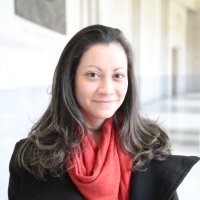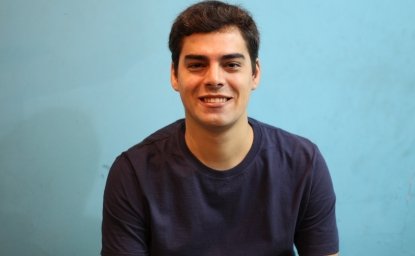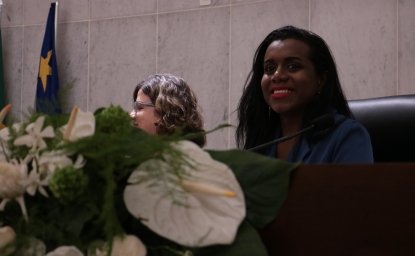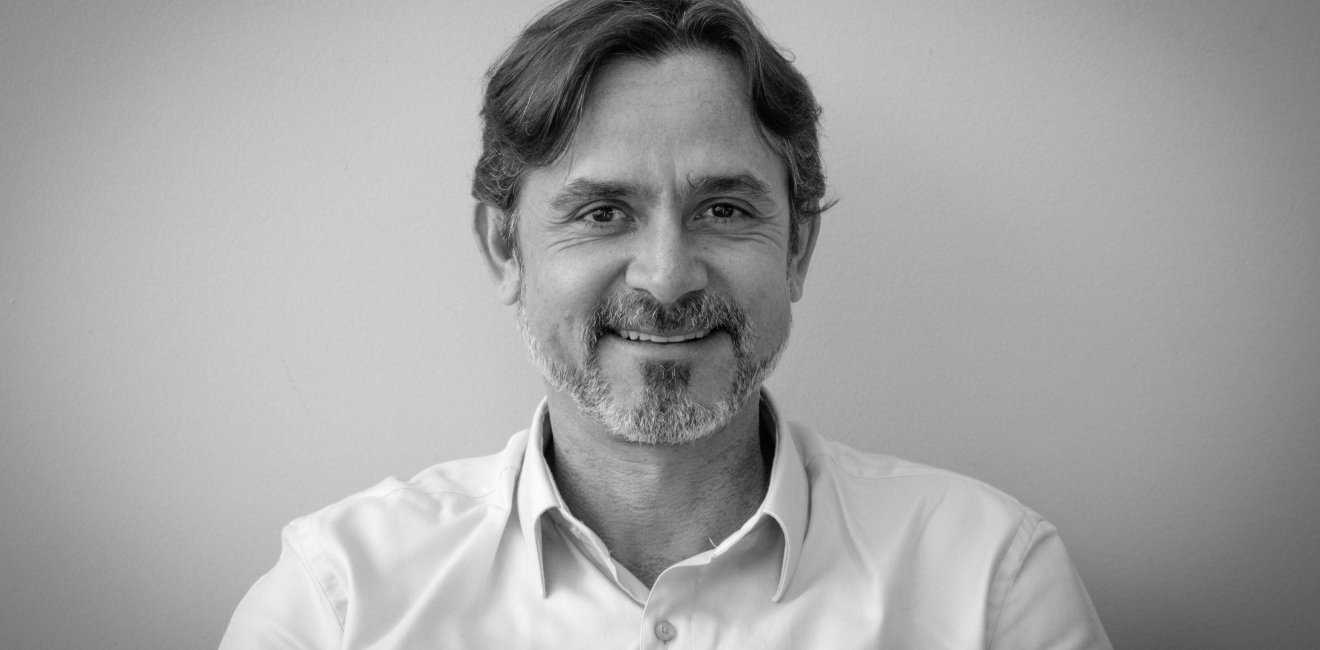
A blog of the Wilson Center
Rogério Silva holds a Ph.D in public health from the University of São Paulo (USP) and an undegradute degree in pharmacy from the State University of Londrina (UEL), Paraná. Rogério is also a psychoanalyst, earning his degree from the Center for Psychoanalytic Studies (CEP) in São Paulo. He studied program evaluation at Western Michigan University (WMU) and the facilitation of human and organizational development at the Community Resources Development Association (CDRA) in South Africa. He is currently a consulting partner for PACTO. Rogério has worked on social policy issues since 1991, and has become an expert in the planning, evaluation, and management of social programs and policies. Among his many positions, he conducted health research at the Brazilian Institute for Consumer Protection (IDEC) and managed the family health program at the Zerbini Foundation. He founded both the Fonte Insitute for Social Development, which he led until 2010, and MOVE Strategy and Evaluation, where he was director of research until 2017. Rogério has taught at various universities, and has also written numerous articles and book chapters on the themes of evaluation and planning.
The following conversation has been condensed and edited for clarity. The views and opinions expressed below are the interviewee's own, and do not necessarily reflect the views of the Brazil Institute or the Wilson Center.
What is your opinion about the movement Quero Prévias? What are the proposals of Quero Prévias?
Throughout Brazil, various movements are mobilizing with the purpose of promoting change in Brazilian politics. The movements that are democratic in nature are arguably less structured than movements that have emerged from the Far Right, such as the Movimento Brasil Livre (The Free Brazil Movement, MBL), which unfortunately has had greater influence and success than others.
The movement Quero Prévias (We Want Primaries) grew and attracted a large following between August and December 2016. Those who decided to participate in the movement sought to contribute to political debates and promote change in Brazil’s political parties. Although Quero Prévias formed outside of political parties, the movement is interested in having dialogue with them to promote systemic change in Brazil’s democracy.
At its inception, the movement built a loyal base, created a manifesto, constructed strategies, built a website, and united people that aligned with the ideologies of Quero Prévias. Such ideologies include the promotion of human and civil rights, the reduction of social inequality, and the strengthening of democracy. This initial progress was motivated and to a certain extent pressured by the electoral calendar; influencing the 2018 elections was the objective that guided the strategies of Quero Prévias.
Quero Prévias initiated dialogue with various actors from civil society and political parties, including former Mayor of the city of São Paulo Fernando Haddad, the advisory council of well-known politician Ciro Gomes, advisors from the political party Rede Sustentabilidade (Sustainability Network, also known as REDE), former President Luiz Inácio Lula da Silva at the NGO Instituto Lula, and the former President of the Workers’ Party (PT) Rui Falcão. These visits were diplomatic in nature and sought to explain the proposals of Quero Prévias rather than solicit help or alliances. The initial conversations were dynamic, and sparked the interest of various public figures and groups in Brasília, Recife, Salvador, Rio de Janeiro, São Paulo, and Porto Alegre. However, the conversation did not evolve.
After the movement [officially] launched and its website went live, however, signatures in support of the movement came at a much slower rate than anticipated (although the numbers should not be completely dismissed, since the movement collected five thousand signatures). As a result, Quero Prévias [attempted to strengthen] dialogue with political forces on the left and members of civil society [in the lead up to] the 2018 elections, holding open meetings [based on the belief] that dialogue would lead to political reform and progress.
However, this strategy did not produce expected results, and a number of followers left Quero Prévias upon realizing that the movement did not have the capacity to advance and initiate dialogue with political parties. Nevertheless, the movement continues to be active, and just recently organized a discussion about public security in Rio de Janeiro. Quero Prévias is in the process of creating an agenda for 2018, although formulating an agenda will be difficult due to the new election rules and the uncertainty of Lula’s candidacy[1]. Although Quero Prévias has not yet proposed a clear strategy for 2018, it is possible that they will develop one.
What is your opinion about the movement Nova Democracia? What are the proposals of Nova Democracia?
I follow Nova Democracia’s progress and have participated in a few of the movement’s meetings. I admire how Nova Democracia operates as a link between different political movements that are seeking to improve political debates and democracy in Brazil. One of the movement’s most notable efforts is focused on new electoral reforms. When it became evident that the electoral reform effort was not advancing in Congress, Nova Democracia began to monitor the reform effort and concentrated on maintaining dialogue with members of Congress.
Nova Democracia is currently discussing how it will proceed in 2018. Some movements are more resolute and organized, such as Agora! and Bancada Ativista; while others have made less progress in developing and implementing strategies, such as Quero Prévias. Nonetheless, I want to reaffirm the importance of Nova Democracia and its effort to create more channels for public participation in democratic processes.
Will Quero Prévias or Nova Democracia support a candidate in the 2018 elections?
Nova Democracia will not choose a candidate for the 2018 elections, nor will it align itself with a political party. The movement focuses on the rules of the game, electoral debate, programming, and on the relationships among the different political movements that are trying to reform Brazilian politics. As the name implies, Nova Democracia seeks to foster a democratic environment. The movement aims to develop better political parties, movements, and electoral dynamics.
My understanding is that the movement Quero Prévias will also not align itself with a candidate or political party. Although some political forces on the left—such as sectors within the Workers’ Party (PT), the Democratic Labor Party (PDT), the Communist Party of Brazil (PCdoB), and the Socialism and Liberty Party (PSOL)—understand that it would be best to support a single candidate, it seems that this will only be possible during the second round of the 2018 elections. In the upcoming months, this could lead to additional conversations and perhaps an association of various leftist movements. But at the moment, there no indication that this will happen.
Do you think that it is possible to change Brazil from inside the political system?
It is possible, without a doubt. Society needs politics—but it needs politics centered on values that have not been common in Brazilian society. All of the new political movements that have emerged talk about promoting better and more ethical politics, but we need to be clear and careful in defining “good” politics.
First, good politics consists of a profound respect towards democracy and democratic institutions, a value that has often been absent over the course of Brazilian history.
Second, Brazil lacks politics that respond to the demands and needs of all members of our diverse society. In Brazil, politics largely represent private interests rather than public concerns. Politics should be turned towards public concerns, and implemented with tremendous care for the public good.
Ultimately, Brazil needs a political system that is more inclusive, with more representation from Afro-descendants, women, and youth: three groups that have been socially and politically marginalized throughout Brazilian history. We need more Afro-descendants, women, and youth occupying positions in political parties and creating new policies, as opposed to the traditional dominance of white men.
There have been interesting signs of political innovation in various new movements, but there have also been worrying developments, such as candidates from the extreme right and candidates that rose rapidly outside of the party system, such as João Doria and Luciano Huck. Political innovation is necessary, and having candidates outside of political parties is certainly not bad, but we need to have leaders who are dedicated to the public good, committed to democracy, and understand Brazil in all its diversity.
Theoretically, political parties should connect civil society to the political system. However, this almost never happens in Brazil. Do you think that this failure of political parties is what motivates these movements to find a new way to enter politics?
I agree with the premise of the question. Political parties in Brazil have historically been parties composed of the elite. The Workers’ Party was arguably the first political party that was initially able to break this logic due to its popular base. However, over time and due to certain choices, the Workers’ Party became a more traditional party, especially after 2002. Political parties are an instrumental component of politics, and the need for better parties is a fundamental premise of Quero Prévias and Nova Democracia, for example.
The most democratized movements have always respected political parties. Some of the Brazilians (although not all) who participated in the street demonstrations of June and July 2013 [to protest an increase in bus fare in São Paulo] began to reject political parties, and began to speak of destroying the parties. Voices such as these are weakening democracy. These voices were also present in the [2016] elections in the United States: Donald Trump values political instruments that are less democratic and more authoritarian. Nonetheless, the political situation in the United States is still very different from that in Brazil because its political institutions are more stable.
Yet paths to strengthen democracy also exist outside of political parties. These paths include implementing new policies at the three levels of government, mobilizing public agents, opening channels for civic participation in public spaces, fomenting debates in universities, and producing more research and knowledge. In short, it is important to incentivize political participation in a wide range of spheres, and not just in political parties. This is the critical point: political parties are essential, but they are not sufficient in and of themselves, and never will be.
Do you think it is feasible for the movements to implement the reforms that they are in the process of developing before the 2018 elections?
Some of the new political movements have many projects underway, but they are also very young. Moreover, the entire progressive side has limited funds, and money is critical for electoral success. I hope that they strengthen over the next year, and have some sort of collective influence in 2018—I think voters will be more informed—but we shouldn’t expect to see results by the 2018 elections. I think that these movements are, in their various ways, trying to create new phenomena in politics. They are built on fundamental principles: the defense of rights, the defense of democracy, and the reduction of social inequality. They are a force of resistance in this moment of retreat following the impeachment of President Dilma Rousseff [in 2016]. But again, we should be careful about hoping for miracles in 2018.
You mentioned earlier that there should be more youth involvement and representation in politics. If younger generations want to change Brazil, do they need to be involved in politics or public service? Are there other paths through which young Brazilians can change the country?
Not everything happens via formal politics. Young Brazilians need to be engaged in every sector of society in order to strengthen the ethical and political character of Brazil. It is true that Brazil needs stronger parties, better leadership, and increased representation of Afro-descendants, women, and youth in politics. However, ethical young Brazilians also need to be active in the fields of health, education, public transportation, housing, and many other professions. If youth occupy these positions, there will be a greater capacity to create public policy reforms that influence these areas.
Furthermore, Brazil is in need of reliable businesses that do not corrupt public agents, as was revealed in Operação Lava Jato (Operation Car Wash). These businesses should be more responsible and transparent, employ more women, and eliminate the gender pay gap. NGOs also play a crucial role, as does journalism.
When these new movements say that we need political innovation, they are also saying that we need be more ethical in many spheres: in families, in neighborhoods, in businesses, and even in soccer teams! All of these spaces need to function in a more inclusive, democratic, respectful, and harmonious manner.
Therefore, there are various paths according to the vocation, desires, and talents of each individual. Young Brazilians need to occupy leadership positions on each path in order to build a true and virtuous nation. Brazil will not get very far if we all follow a single path.
Part of our project is explaining the movements and their proposals, not only for a Brazilian audience, but also for an American audience that follows us. One of our most reoccurring questions is, how can those that live outside of Brazil help and support these movements? How can we help implement these changes, being outside of Brazil?
The more research and analyses produced about Brazil’s current political situation, the better. The type of work you are doing with this blog, because you are less intimately involved with the political forces at work here in Brazil, is very welcome and helps us look at the situation from an outside perspective. The issues we have been discussing—the threats to civil rights, the advance of the extreme Right—are not unique to Brazil. These issues are also of concern in France, Germany, England, the United States. Yet Brazilians frequently speak as if these are local phenomena, when they are in fact global. I think comparative analysis will help Brazil’s new political movements recognize strategies that progressive groups are implementing in other countries, and will help them understand, for example, why Luciano Huck is not the equivalent of President Emmanuel Macron in France. Comparative analysis is crucial.
In addition, international recognition helps new political movements secure more financial aid. International foundations such as the Ford Foundation and Open Society Foundations are investing in movements that are producing new mechanisms and new leadership in politics, which is of tremendous importance. Therefore, this analytical coverage will help the U.S. citizen, researcher, or donor understand that it is important to have a democratic Brazil in order to have a more equal and democratic Latin America, a region where Brazil has considerable economic and political influence. Brazil will win and the United States will win if researchers and donors recognize the need to support new political movements that promote a more legitimate, fair, and transparent democracy in Brazil.
[1] Congress approved several reforms that were sanctioned by President Michel Temer in October 2017. These reforms include the creation of a public electoral fund and limits to spending, depending on the post a candidate is running for. In addition, parties must achieve a minimum performance in order to have TV and radio time as well as access to the electoral fund. Candidates may collect funds through crowdsourcing starting May 15 of the election year, whereas previously candidates could begin collecting funds in August.
Authors



Brazil Institute
The Brazil Institute—the only country-specific policy institution focused on Brazil in Washington—aims to deepen understanding of Brazil’s complex landscape and strengthen relations between Brazilian and US institutions across all sectors. Read more

Explore More in InoVozes
Browse InoVozes
Interview with Marcelo Calero, Career Diplomat and Federal Deputy

Interview with Tiago Mitraud, Federal Deputy and Leader of RenovaBR

Interview with Robeyoncé Lima, a Voice for Pernambuco’s LGBTQ+

